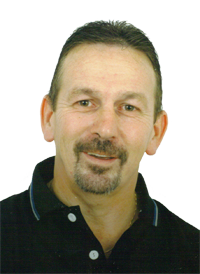

Has progress come at too great a price? As the scourge of the two-headed monster that is plastic production assaults us daily, have we been so keen to embrace modernity that we could not in the past, and cannot now, see the devastation we are causing?
The name ‘plastic’ is derived from the ancient Greek word ‘plastikos’ which means “capable of being shaped or moulded”. It was created initially by Alexander Parkes, an Englishman, in 1856, with his processes further developed over the next fifty years by German printer Wilhelm Krische and Austrian chemist Adolf Spiteler. However, it was New York-based, Belgian-born, Leo Baekeland who made the substantive breakthrough when he invented ‘bakelite’, the first genuine, industrially produced plastic, in 1907, and thus, 111 years ago, it all began.
Plastics have revitalised the manufacturing world, and particularly the packaging industry, as it was, and is light, cheap, easy and quick to produce. Plastic also provides a biological barrier, therefore it has a remarkable number of genuine applications in the fields of science and medicine, and yet it is so light and disposable, that the one of the greatest environmental challenges ever to face mankind is how to take something that has been designed to last a lifetime, but has so many uses of only minutes.
That’s why plastic has become such a two-edged sword today.
It is the forensic and medical applications of plastic that will surely keep plastics production at the forefront of the packaging industry. However, aside from that morally sustainable imperative, cheap, ‘throwaway’ packaging, in the form of wafer thin plastic bottles, and convenience bags, has certainly been identified as the most insidious of the environmental foes.
The acclaimed BBC natural history series Blue Planet 2, featured a mother Pilot Whale who had lost her baby due to the effects of plastic pollution, yet continued to nurse her dead baby for days afterwards. One viewer termed it, “The most heart-breaking thing I’ve ever seen, the whale mother carrying her dead baby made me cry like a baby but made me realise we need to do something about this now!”
There is too, the so-called, ‘Great Pacific Garbage Patch, where a large system of circulating currents in the North Pacific has seen a collection of plastics, chemical sludge and debris form a veritable island of floating trash, reliably measured by recent research to contain 80,000 tonnes of plastic. This is sufficient to affect not only nature, but also shipping, which must now divert around the garbage patch. In fact, there are scientifically accepted to be five such gyres as they are known, across the globe, but they are generally an out-of-sight, out-of-mind phenomenon.
This dilemma facing us was brought home to me in dramatic fashion last week as Lena, my wife, and I drove down to Sharqiyah for a weekend of nature viewing, as it is currently high season for the turtles at the Ras Al Jinz Reserve. We stopped along the way to take in the scenery and the wildlife, and for Lena to take some photos, but it was absolutely heart-wrenching to see, not only the flotsam from the Gulf, which I can accept as a consequence of a very busy shipping lane, but the excessive and unconscionable amount of empty water bottles and blue plastic bags littering the seashores of this beautiful country.
For goodness sake, there can be no pride in having one of the quietest and most peaceful, most beautiful, countries in the world, if you are going to neglect, or even abuse, its nature. Heinrich Zimmer wrote, “Limitless and immortal, the waters are the beginning and end of all things.” Let that quote ring true for eons, and play your part in sustaining and conserving nature, as part of the solution.
Ray Petersen
petersen_ray@hotmail.com
Oman Observer is now on the WhatsApp channel. Click here



